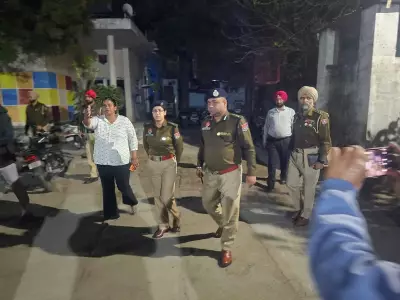
In a groundbreaking judgment that reinforces citizen rights, the Supreme Court of India has delivered a powerful verdict making it mandatory for police to provide written grounds of arrest to all individuals detained under any offence, whether under the Indian Penal Code or the newly enacted Bharatiya Nyaya Sanhita.
The Landmark Ruling Explained
A Constitution Bench comprising Justices Sanjiv Khanna, Dipankar Datta, P.B. Varale, and A.S. Oka declared that Section 19(1) of the Bharatiya Nagarik Suraksha Sanhita (BNSS) must be interpreted to require written communication of arrest grounds for all offences, not just those punishable with less than seven years imprisonment as the text might suggest.
Why This Judgment Matters
The court emphasized that this requirement is fundamental to personal liberty and forms the bedrock of criminal procedure. "The communication of the grounds of arrest must be in writing," the bench stated unequivocally, adding that oral communication alone does not satisfy constitutional mandates.
Key Implications for Citizens
- Police must provide written grounds of arrest for ALL offences
- Applies equally to IPC and BNS cases
- Oral communication alone is insufficient
- Strengthens fundamental rights against arbitrary detention
Legal Context and Background
The ruling came while examining the constitutional validity of the Prevention of Money Laundering Act (PMLA), but its implications extend far beyond financial crimes. The court clarified that the fundamental right under Article 22(1) of the Constitution requires that every arrested person must be informed of the grounds for their arrest.
What This Means for Law Enforcement
Police authorities across India will need to adapt their arrest procedures immediately. The judgment leaves no room for ambiguity - written documentation of arrest grounds is now non-negotiable, regardless of the severity of the alleged offence.
Expert Legal Opinion
Legal scholars are hailing this as a significant victory for civil liberties. The judgment ensures that the transition from IPC to BNS doesn't dilute existing protections, maintaining the delicate balance between state power and individual rights.
The Supreme Court's clear directive reinforces that procedural safeguards cannot be compromised, setting a precedent that will protect citizens against potential misuse of arrest powers in the new legal framework.






